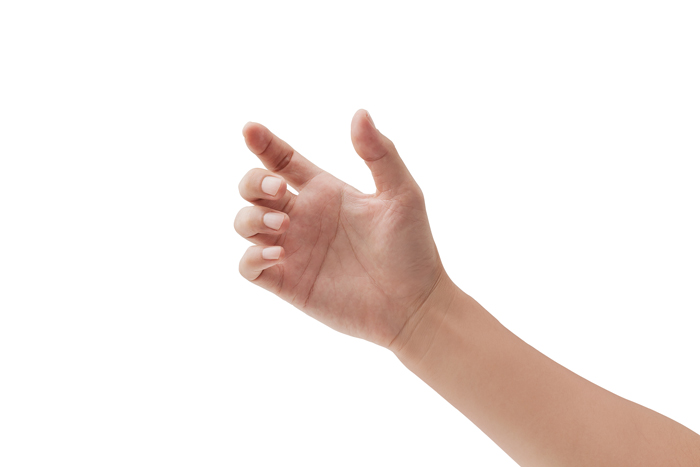Hand Plastic Surgery in Koramangala, Bangalore
Crush injuries and wounds caused by sharp objects can lead to painful hand movements. When this happens, hand reconstruction surgeries can help you regain comfortable movement.
There are many types of hand reconstruction surgeries, depending on the problem you are facing. These surgeries can help restore normal hand functions and make your hands feel as normal as possible.
What Are Hand Reconstruction Surgeries?
Hand reconstruction surgeries help patients to carry on their daily activities without difficulty moving their hands. These surgeries can help repair bones, nerves and can also rebuild the appearance of damaged hands. The term ‘hand reconstruction’ is a broad one, and the goal of this surgery is to restore your hand's functions and appearance to normal over time.
Some deformities and dysfunctions can go away with a single surgery, while some may need more than one. With the help of an experienced surgeon, you can expect either of the deformities to heal effectively.

When Do You Need a Hand Reconstruction Surgery?
Situations that may require you to get hand reconstruction surgeries include:
- Hand injuries
- Infections
- Rheumatic diseases like osteoarthritis(a condition in which the cartilage of the bones gradually deteriorates) and rheumatoid arthritis
- Other disorders that damage the structure of the hand
- A significant limitation in the ability to perform daily activities
- Congenital deformities
- Damaged tendons, nerves, and blood vessels
When to See a Doctor?
Seek help if the deformities in your hand are hampering your daily life. One common condition that can limit the functioning of your hand is arthritis. It can cause pain, swelling, stiffness, and bumps in your fingers. If the condition is severe, it is better to undergo surgery.
Other than this, if you face a tendon disorder or injury, any nerve disorders, then you should make an appointment with a surgeon.
Request an appointment at Apollo Hospitals
Call 1860 500 2244 to book an appointment.
Possible Risk Factors
Even though hand reconstruction surgeries are usually effective, there may be a few risk factors associated with it. Some of them are as follows:
- Infections
- Incomplete healing
- Risks of anesthesia
- Pain
- Blood clots
- Bleeding
- Loss of feeling or movement
If you notice any of these symptoms, consult your doctor to get proper treatment.
Ways to Reconstruct Your Hand Through Surgery
There are many types of hand reconstruction surgeries. Depending upon the problem you are facing, the doctor may advise the following surgeries:
- Skin Grafting: In this surgery, the surgeon incorporates skin grafted from a healthy part of the body with the damaged part of your hand. It is common in cases of burns, major skin diseases, and big wounds. Doctors can also perform this surgery to cover damaged skin, infections, and cuts.
- Microsurgery: Deep injuries can sometimes cause a rupture in the blood vessels and nerves in your hands. When this happens, surgeons use microsurgery to repair these delicate vessels and restore hand functions.
- Nerve Repair: Some nerve injuries are minor and can heal on their own. But some may need surgery. The doctor will probably conduct the surgery after about three to six weeks of the injury. It is the best time for nerve repairs linked with other injuries.
- Tendon Repair: Tendon repairs are a bit complicated because of their structure. But with care and proper treatment, you can expect smooth recovery. Tendons are the fibers that connect muscles and bones. A tendon injury can occur due to direct trauma or can be the result of gradual wear and tear as well. The repair can be of three types: primary repair, delayed primary repair or secondary repair.
- Joint Replacement: This surgery, also called arthroplasty, is for people with severe arthritis. The procedure involves removing the damaged joint of the hand and replacing it with an artificial one. These surgeries can improve mobility and can relieve pain as well.
Conclusion
Every dysfunction requires different hand reconstruction surgeries. But with proper treatment, you can restore your hands to normal. One of the most crucial steps to a successful surgery is following the surgeon's instructions.
Following instructions carefully, taking medications, and following a proper aftercare procedure can help you gain an effective and fast recovery.
If you are on any medications, it is better to talk to the doctor before the procedure and be sure if you can continue them. You can also consider asking your doctor if there are other medicines you mustn't take before or after the surgery.
Every surgery takes its own time to heal. Your recovery also depends on the severity of your condition. For example, tendon recovery can take up to 12 weeks to heal and another six months to regain proper movement.
It again depends on the severity of the surgery. It is always best to talk to your surgeon about it. If they ask you to avoid a few activities, then you should follow their instructions.
Symptoms
Our Top Specialities
NOTICE BOARD
CONTACT US
CONTACT US
 Book Appointment
Book Appointment


.svg)
.svg)
.svg)
.svg)








